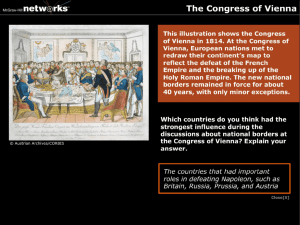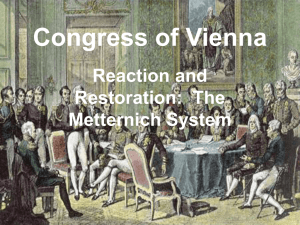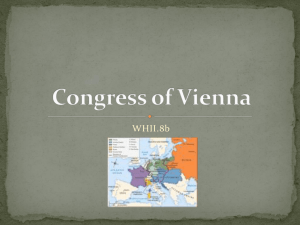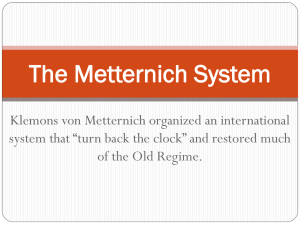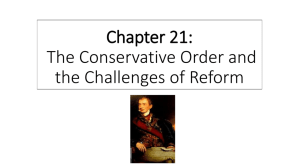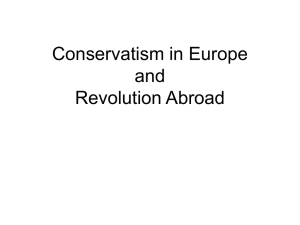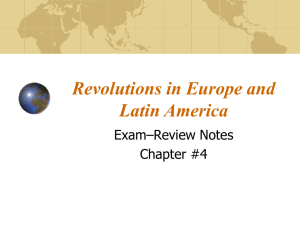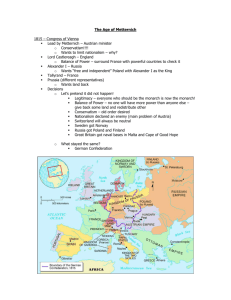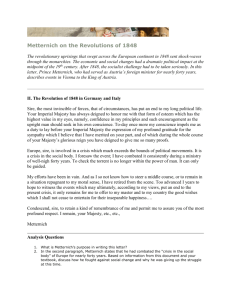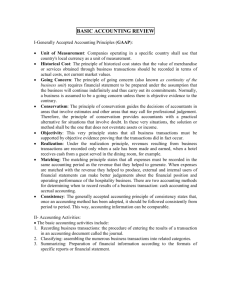The Voice of Conservatism
advertisement
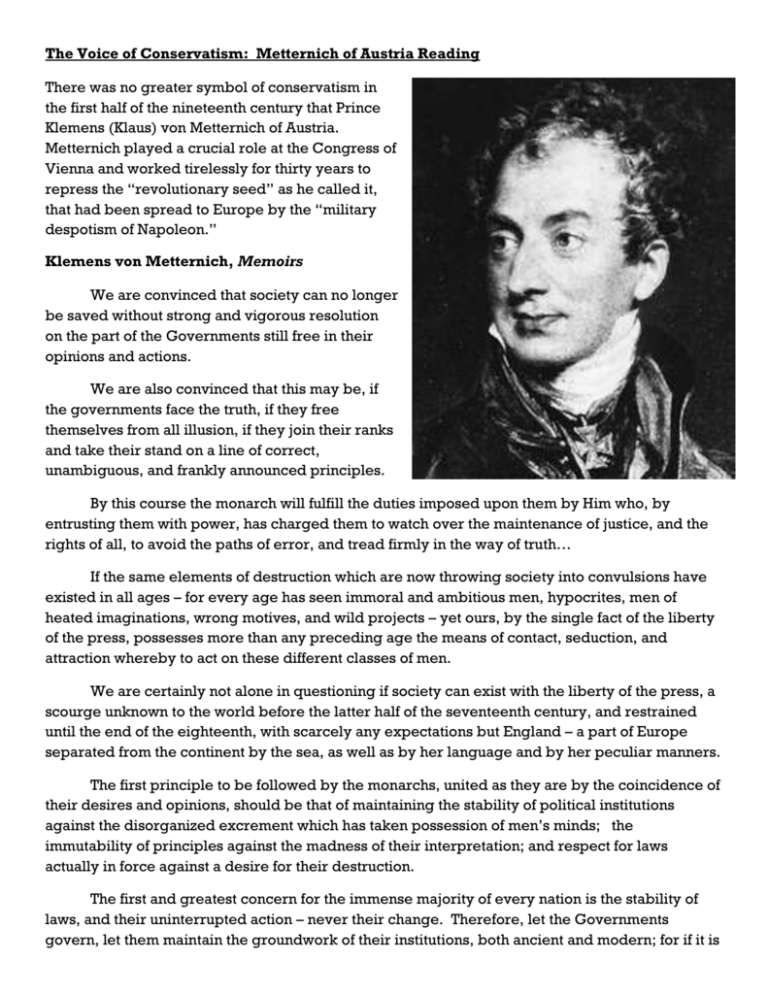
The Voice of Conservatism: Metternich of Austria Reading There was no greater symbol of conservatism in the first half of the nineteenth century that Prince Klemens (Klaus) von Metternich of Austria. Metternich played a crucial role at the Congress of Vienna and worked tirelessly for thirty years to repress the “revolutionary seed” as he called it, that had been spread to Europe by the “military despotism of Napoleon.” Klemens von Metternich, Memoirs We are convinced that society can no longer be saved without strong and vigorous resolution on the part of the Governments still free in their opinions and actions. We are also convinced that this may be, if the governments face the truth, if they free themselves from all illusion, if they join their ranks and take their stand on a line of correct, unambiguous, and frankly announced principles. By this course the monarch will fulfill the duties imposed upon them by Him who, by entrusting them with power, has charged them to watch over the maintenance of justice, and the rights of all, to avoid the paths of error, and tread firmly in the way of truth… If the same elements of destruction which are now throwing society into convulsions have existed in all ages – for every age has seen immoral and ambitious men, hypocrites, men of heated imaginations, wrong motives, and wild projects – yet ours, by the single fact of the liberty of the press, possesses more than any preceding age the means of contact, seduction, and attraction whereby to act on these different classes of men. We are certainly not alone in questioning if society can exist with the liberty of the press, a scourge unknown to the world before the latter half of the seventeenth century, and restrained until the end of the eighteenth, with scarcely any expectations but England – a part of Europe separated from the continent by the sea, as well as by her language and by her peculiar manners. The first principle to be followed by the monarchs, united as they are by the coincidence of their desires and opinions, should be that of maintaining the stability of political institutions against the disorganized excrement which has taken possession of men’s minds; the immutability of principles against the madness of their interpretation; and respect for laws actually in force against a desire for their destruction. The first and greatest concern for the immense majority of every nation is the stability of laws, and their uninterrupted action – never their change. Therefore, let the Governments govern, let them maintain the groundwork of their institutions, both ancient and modern; for if it is at all times dangerous to touch them, it certainly would not now, in the general confusion, be wise to do so… Let them maintain religious principles in all their purity, and not allow the faith to be attacked and morality interpreted according to the social contract or the visions of foolish sectarians. Let them suppress Secret Societies, that gangrene of society… To every great State determined to survive the storm there still remain many chances of salvation, and a strong union between the states on the principles we have announced will overcome the storm itself. Questions for Critical Thought: 1) Outline the social and political world of Europe that emerged from the decisions of the Congress of Vienna. How did it seek to establish a balance of power? Why is it called a Monument to Conservatism? 2) Explain the ideology of nineteenth-century Conservatism. 3) According to Metternich, what characteristics of a nation give its people security and stability? Explain how he feels each characteristic contributes to the whole.
